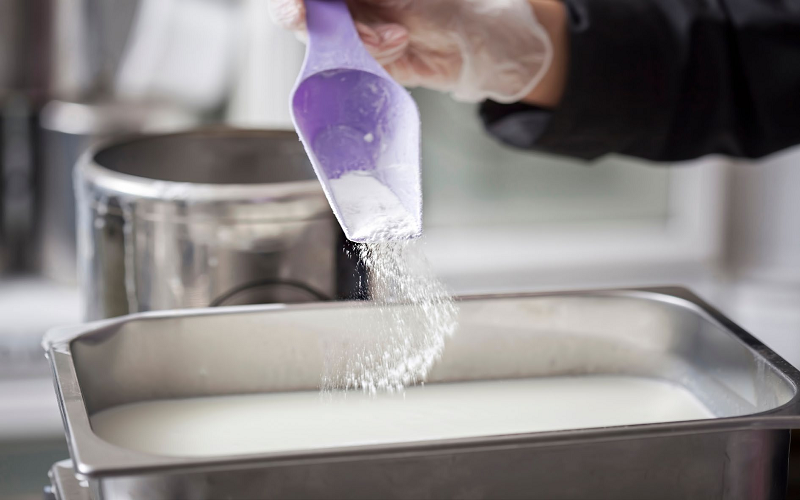Transforming Whey: A Low-Carbon Answer to Food Security
Sourse: www.greenqueen.com.hk
Tecnológico de Monterrey and DTU scientists upcycle dairy byproduct whey into sustainable microbial proteins, helping reduce food waste and providing a climate-friendly protein alternative.

Whey protein, the largest byproduct of the dairy industry, often ends up discarded, polluting ecosystems with approximately 180 to 190 million tonnes produced annually worldwide. However, researchers at Tecnológico de Monterrey and the Technical University of Denmark (DTU) have developed a process to upcycle whey into sustainable single-cell proteins through fermentation.
Mario Antonio Torres-Acosta, PhD, leads this initiative, emphasizing the necessity of alternative proteins amid global climate and food security crises. Using a non-GMO approach, the team employs microbial communities to break down lactose in whey, generating a protein-rich biomass. This process is efficient, scalable, and omits the use of genetically modified organisms, making it market-friendly.
The resulting protein is nutritionally comparable to meat and milk, requiring less land and emitting fewer carbon emissions than livestock farming. With production costs at $1,600 per tonne and a market price between $5,000 and $7,000, it offers a cost-effective alternative to beef, priced at around $5,400 per tonne in Europe. The project, aligning with Tecnológico de Monterrey's Flagship Project on Food Security and Nutrition, advocates for a circular economy approach to manage whey waste.
This innovative solution could easily be implemented in cheese-producing regions to tackle issues stemming from the 80-90% of milk conversion into whey during cheese production. In Europe, Germany's $2.8M grant supports similar efforts to upcycle whey, highlighting the growing importance and potential of transforming this abundant byproduct into viable food products.
Mario Antonio Torres-Acosta, PhD, leads this initiative, emphasizing the necessity of alternative proteins amid global climate and food security crises. Using a non-GMO approach, the team employs microbial communities to break down lactose in whey, generating a protein-rich biomass. This process is efficient, scalable, and omits the use of genetically modified organisms, making it market-friendly.
The resulting protein is nutritionally comparable to meat and milk, requiring less land and emitting fewer carbon emissions than livestock farming. With production costs at $1,600 per tonne and a market price between $5,000 and $7,000, it offers a cost-effective alternative to beef, priced at around $5,400 per tonne in Europe. The project, aligning with Tecnológico de Monterrey's Flagship Project on Food Security and Nutrition, advocates for a circular economy approach to manage whey waste.
This innovative solution could easily be implemented in cheese-producing regions to tackle issues stemming from the 80-90% of milk conversion into whey during cheese production. In Europe, Germany's $2.8M grant supports similar efforts to upcycle whey, highlighting the growing importance and potential of transforming this abundant byproduct into viable food products.
Key News of the Week









